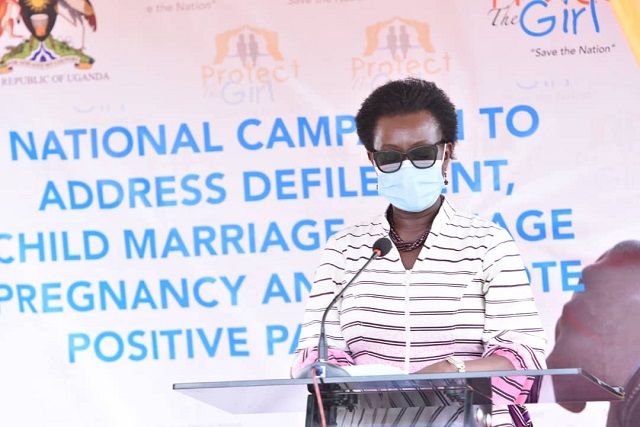
Kampala, Uganda | THE INDEPENDENT | Gender experts have asked the government to ensure that women receive support to cope with the hazards of climate change.
The UN Population Fund (UNFPA) Director in Uganda Dr. Mary Otieno, and her UN women counterpart, Adekemi Ndieli observe that because women are more likely to live in poverty than men, they are prone to violence.
Dr. Oteino and UN Women Deputy Country Director, Adekemi Ndieli were part of the Post-Women’s day discussion panel under the theme “Gender Equality today for sustainable tomorrow: Unpacking UNFPAs Strategic Plan on prioritizing climate action to achieve the three transformative goals” on Thursday.
“The world in 2020 is different from what it was in as early as the 1960’s. Now we see increased disasters, increased flooding, increased risks and shocks that communities continue to face” said Ndieli. “And as a result of these disasters, women are put in a worse position because when people are poorer, the impacts are heavier on them,” she added.
She said during extreme weather such as droughts and floods, women tend to work more to secure household livelihoods.
“They are usually the first responders. And as first responders, they need to be equipped with the knowledge and they need to be at the negotiation table, they need to be decision-makers so that they can provide necessary tools because they can understand the circumstances better,” she said.
Studies by the UN Women indicate that climate change has serious ramifications in four dimensions of food security: availability, accessibility, utilization, and food systems stability. Furthermore, the studies indicate that women farmers currently account for 45-80 percent of all food production in developing countries depending on the region.
Global studies resonate with Uganda where about two-thirds of the female labour force is engaged in agricultural work.
Dr. Mary Otieno says that disasters normally deny women and girls access to sexual reproductive health services exposing them to further vulnerability. A disaster like floods or mudslides may have a longtime impact on women especially when services are cutoff.
“Now they are also not able to plan their families. For instance, I don’t want to have a child. I have just had a child. And I need to plan. But then the roads are all washed out, logistics are down, then you end up havening a pregnancy that was unintended” said Dr. Oteino.
Under the Paris Agreement, parties acknowledge that climate change is a common concern of humankind. Parties to the UN Framework Convention on Climate Change (UNFCCC) should when taking action to address climate change, respect, promote and consider their respective obligations on human rights, the right to health, the rights of indigenous peoples, local communities, migrants, children, persons with disabilities.
Studies have found shortfalls of gender considerations in climate change policy formulation and implementation in Uganda.
“Even as Uganda progressively engages more earnestly with gender and climate change issues at the policy level, challenges still remain in formulation, regulatory framework and implementation at district and lower governance levels,” said a study under Policy Action for Climate Change Adaptation (PACCA) project.
Vicky Miracle Chemutai, a young person living with a disability has experienced how climate change policies affect Persons with Disabilities (PWDs). “A lot of discussions are happening around how can we have a sustainable climate. But persons with disabilities are not fully involved” said Chemutai.
*****
URN
 The Independent Uganda: You get the Truth we Pay the Price
The Independent Uganda: You get the Truth we Pay the Price


